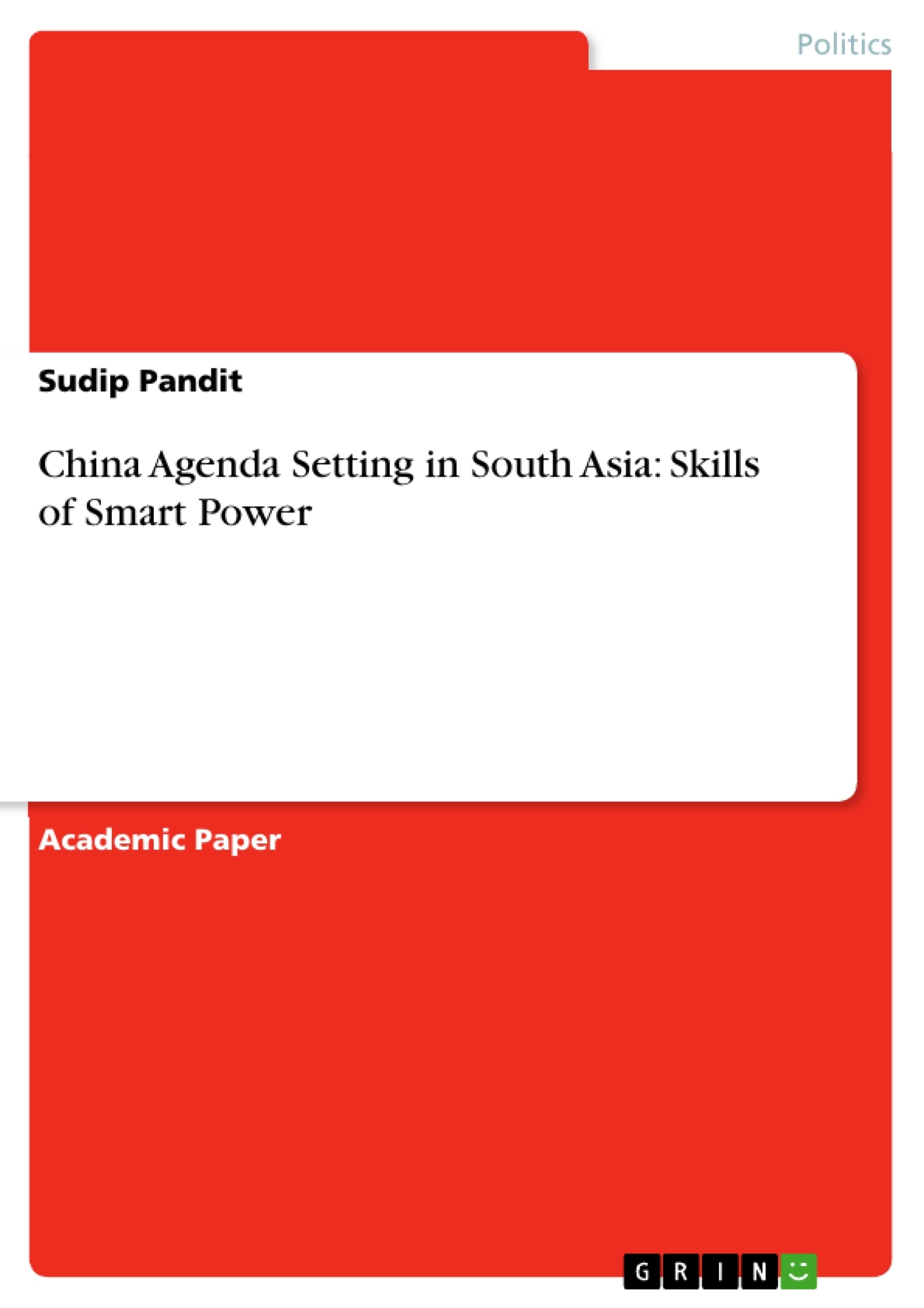In setting of today’s international system, the Chinese foreign policy in South Asia is increasingly influenced due to the determinants of geopolitical and political economy outlooks. This paper attempts to explore Chinese agenda setting in South Asia in terms of soft and hard power policies. China has been expanded its geopolitical and economic interest in South Asia by means of investment, aid, military assistance, economic cooperation and trade ties. By using as an instrument of “smart power” (adroit behavior of using soft and hard power collectively) has become a vehicle to promote the Chinese national interests in South Asia. Based on the analysis of various determinants concerning soft and hard power, this paper contextualized that China is competently functioning its skills of smart power in realm of South Asia.
Inhaltsverzeichnis (Table of Contents)
- Abstracts
- Introduction
- Review of Literature
- Methodology
- Conceptual Clarification
- Beginning China Soft Power in South Asia
Zielsetzung und Themenschwerpunkte (Objectives and Key Themes)
This paper explores China's agenda setting in South Asia in terms of soft and hard power policies. It examines how China has been expanding its geopolitical and economic interest in South Asia through various instruments like investment, aid, military assistance, and economic cooperation. The paper focuses on the concept of "smart power" as an instrument for China to promote its national interests in the region.
- China's use of soft and hard power in South Asia
- The role of "smart power" in China's foreign policy
- China's geopolitical and economic interests in South Asia
- The relationship between China's foreign policy and national interests
- The impact of China's agenda setting on South Asian countries
Zusammenfassung der Kapitel (Chapter Summaries)
- Abstracts: This section introduces the paper's focus on China's agenda setting in South Asia through soft and hard power policies. It highlights China's increasing influence in the region due to its geopolitical and economic interests.
- Introduction: This chapter discusses the importance of understanding China's foreign policy in the context of its national goals and the evolving international system. It explores the challenges China faces in achieving its goals and its changing strategy in the post-Cold War era.
- Review of Literature: This chapter examines relevant scholarship on soft power, hard power, and "smart power," including key figures like Joseph Nye and Henry Kissinger. It also delves into China's historical and contemporary approaches to foreign policy, including the "peaceful rise" and "harmonious world" initiatives.
- Methodology: This chapter outlines the research methodology used in the paper, including thematic content analysis and the use of secondary sources. It explains how the researcher gathered information on China's geopolitical viability in South Asia, its use of "smart power," and its specific policies towards the region.
- Conceptual Clarification: This chapter defines key concepts like soft power, hard power, and "smart power." It explores the different dimensions of each concept, emphasizing how "smart power" combines elements of both soft and hard power.
- Beginning China Soft Power in South Asia: This chapter provides a historical overview of China's external relations, particularly in the context of its engagement with South Asia. It examines China's early diplomatic relations with Russia and the US, and the challenges it faced in navigating a complex geopolitical landscape.
Schlüsselwörter (Keywords)
The paper focuses on China's foreign policy in South Asia, exploring the concepts of soft power, hard power, and "smart power" as tools for achieving China's national interests. It analyzes China's geopolitical and economic interests in the region and examines specific instruments like investment, aid, military assistance, and economic cooperation. The paper also discusses China's approach to public diplomacy and cultural exchange in South Asia.
- Quote paper
- Sudip Pandit (Author), 2018, China Agenda Setting in South Asia: Skills of Smart Power, Munich, GRIN Verlag, https://www.grin.com/document/498320



